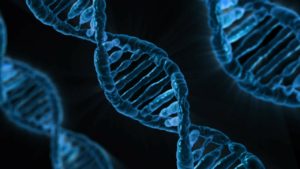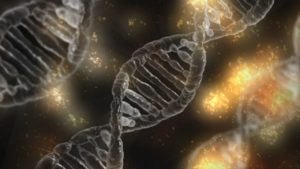Women Only Gene Expression: Epigenetics, DNA, and Autoimmunity

We need to start gaining a better understanding of sex-based differences in disease processes. Autoimmune diseases affect 7.5% of the US population and are among the leading causes of death and disability in the US. Autoimmune diseases such as rheumatoid arthritis, lupus, and Sjogren’s syndrome affect far more females than males. Females comprise over 80% of autoimmune diseases. These conditions seem to ‘switch” on out of nowhere, typically as women age, and sometimes after childbirth. What are the factors that make us susceptible to autoimmunity? In the past, I talked about childhood trauma and autoimmunity. But what about DNA and gene expression? Are these conditions in our genome? Could there be a possible therapeutic intervention targeting the epigenome? Let’s take a closer look!
DNA and Genetic Expression Connection to Autoimmunity

Our DNA plays an imperative role in the development of our immune health and how we function as adults. Researchers are finding a significant relationship between epigenetics and autoimmunity. Changes in our epigenetics can trigger pathways to autoimmune conditions.
Upon reviewing recent research, there appears to be a strong female DNA and gene expression connection to autoimmunity (the specific expression VGLL3 discussed below). Epigenetic changes appear to be involved in the onset of autoimmune diseases. The main pathway is through gene expression. Gene expression is the process by which the heritable information in a gene, the sequence of DNA base pairs, is made into a functional gene product, such as protein or RNA. The basic idea is that DNA is transcribed into RNA, which is then translated into proteins.
How Does Autoimmunity Progress?
Some of our genes can be altered depending upon many different environmental factors. These environmental factors can ‘switch’ autoimmunity on, as they impact our innate immunity.
Some of these factors include;
- Childhood trauma can elicit inflammatory responses through the nervous system
- Physical injury and infections can trigger innate immunity, increasing inflammation in the body
- Hypothalamic-pituitary-adrenal (HPA) axis dysfunction can throw our hormones out of balance. This three-legged stool, the HPA, impacts hormones, cortisol, thyroid functioning.
- Stress hormones can affect our microbiome, resulting in inflammation.
- The profound immunologic adaptations during and after pregnancy do influence maternal autoimmunity.
Women Are More Genetically Susceptible to Autoimmunity

There is a female-biased genetic expression in our DNA that is associated with susceptibility to autoimmune disease. This genetic signature is known as “VGLL3” and has a strong association with multiple autoimmune diseases, including lupus, scleroderma and Sjögren’s syndrome, and had a prominent overlap with other inflammatory processes as well. These results identified a VGLL3-regulated network as a previously unknown inflammatory pathway that promotes female-biased autoimmunity. VGLL3 is also active in men with autoimmune diseases but to a much lesser degree than women. Women have more VGLL3 in their skin cells than men do. Having too much VGLL3 in skin cells pushes the immune system into overdrive, which can lead to autoimmune responses. Researchers have also recently found several other female sex-specific genetic expressions that may contribute to autoimmune diseases in women. These sex-specific expressions in female DNA may be why autoimmune diseases affect women far more than men.
Women Have a Unique Chemistry, and it’s Not Hormone-Related
Hormones do play a significant role in female immune health and the development of autoimmunity. However, it’s not all about hormones. Females are also biologically different from men with regards to autoimmunity. Most of the research surrounding gender differences and autoimmunity is focused around sex hormones, and the effect they have on female immune health. However, researchers found that hormones do not regulate VGLL3. Researchers have found no connection to estrogen or testosterone in immune differences between women and men. These findings show we should place a greater emphasis on studying the female’s unique biology, and look at women differently than we do men.
Male and Female Immune Systems Differ as Well
There are unique gender differences in autoimmunity that may also be due to the differences in female vs. male immune systems as well. These differences are found in most animals. Males have immune suppression linked to male sexual activity, whereas females show increased immune reactivity. This increased reactivity may contribute to why women tend to be more prone to developing autoimmune conditions.
The Answer Lies in Our DNA
 We now know that our DNA holds the answers to our susceptibility to Autoimmunity. Epigenetic pathways play an imperative role in the development and strength of our immune system. The emerging field of epigenetics is helping us to find these hidden secrets so we can better understand autoimmune diseases. In our future therapeutic approaches to autoimmunity, we can target these epigenetic pathways. This can change the future of how we treat autoimmunity, and gives us some hope.
We now know that our DNA holds the answers to our susceptibility to Autoimmunity. Epigenetic pathways play an imperative role in the development and strength of our immune system. The emerging field of epigenetics is helping us to find these hidden secrets so we can better understand autoimmune diseases. In our future therapeutic approaches to autoimmunity, we can target these epigenetic pathways. This can change the future of how we treat autoimmunity, and gives us some hope.
Self Decode Your DNA
Do you want to get personalized health recommendations based on your DNA? SelfDecode offers the most comprehensive health reports and accurate recommendations you can find. Compared to 23andme V5 (605,000) and Ancestry (700,000), the SelfDecode chip contains over 900,000 SNPs that significantly influence health risks, including genes such as MTHFR, ApoE, COMT, Vitamin D Receptor (VDR), HLA variants, and many more. Plus, unlike some popular DNA testing companies, SelfDecode guarantees never to sell your data.
Whether you already have your genes sequenced, or need to order a DNA kit for the first time, SelfDecode offers personalized health recommendations according to your unique DNA and an advanced symptoms analyzer to help you get to the root cause of your health issues. And, my readers can get 15% off when you sign up for SelfDecode by using the code “WomenOnly”!
References:
Yun Liang et al. “AVGLL3 as a promoter of sex-biased autoimmune diseases gene network regulated by the transcription factor.” Nature Immunology volume18, pages152–160 (2017).
Ruslan M. “Origin and physiological roles of inflammation.” NATURE. Vol 454, 24 July 2008. doi:10.1038/nature07201
Kuhlman, Kate Ryan et al. “Age of Trauma Onset and HPA Axis Dysregulation Among Trauma-Exposed Youth.” Journal of traumatic stress vol. 28,6 (2015): 572-9. doi:10.1002/jts.22054
Østensen, M. et al. “Interaction of pregnancy and autoimmune rheumatic disease.” Autoimmunity Reviews Volume 11, Issues 6–7, May 2012, Pages A437-A446
Lindén M. et al. “Sex influences eQTL effects of SLE and Sjögren’s syndrome-associated genetic polymorphisms.” Biol Sex Differ. 2017 Oct 25;8(1):34. doi: 10.1186/s13293-017-0153-7.
Roberta Mazzone et al. “The emerging role of epigenetics in human autoimmune disorders.” Clinical Epigenetics volume 11,Article number: 34 (2019).
Jeffries, Matlock A, and Amr H Sawalha. “Autoimmune disease in the epigenetic era: how has epigenetics changed our understanding of the disease and how can we expect the field to evolve?.” Expert review of clinical immunology vol. 11,1 (2015): 45-58. doi:10.1586/1744666X.2015.994507
https://labblog.uofmhealth.org/lab-report/master-regulator-genes-may-make-women-more-susceptible-to-autoimmune-diseases
S.T.Ngo et al. “Gender differences in autoimmune disease.” Frontiers in Neuroendocrinology. Volume 35, Issue 3, August 2014, Pages 347-369




Leave a Reply
Your email is safe with us.